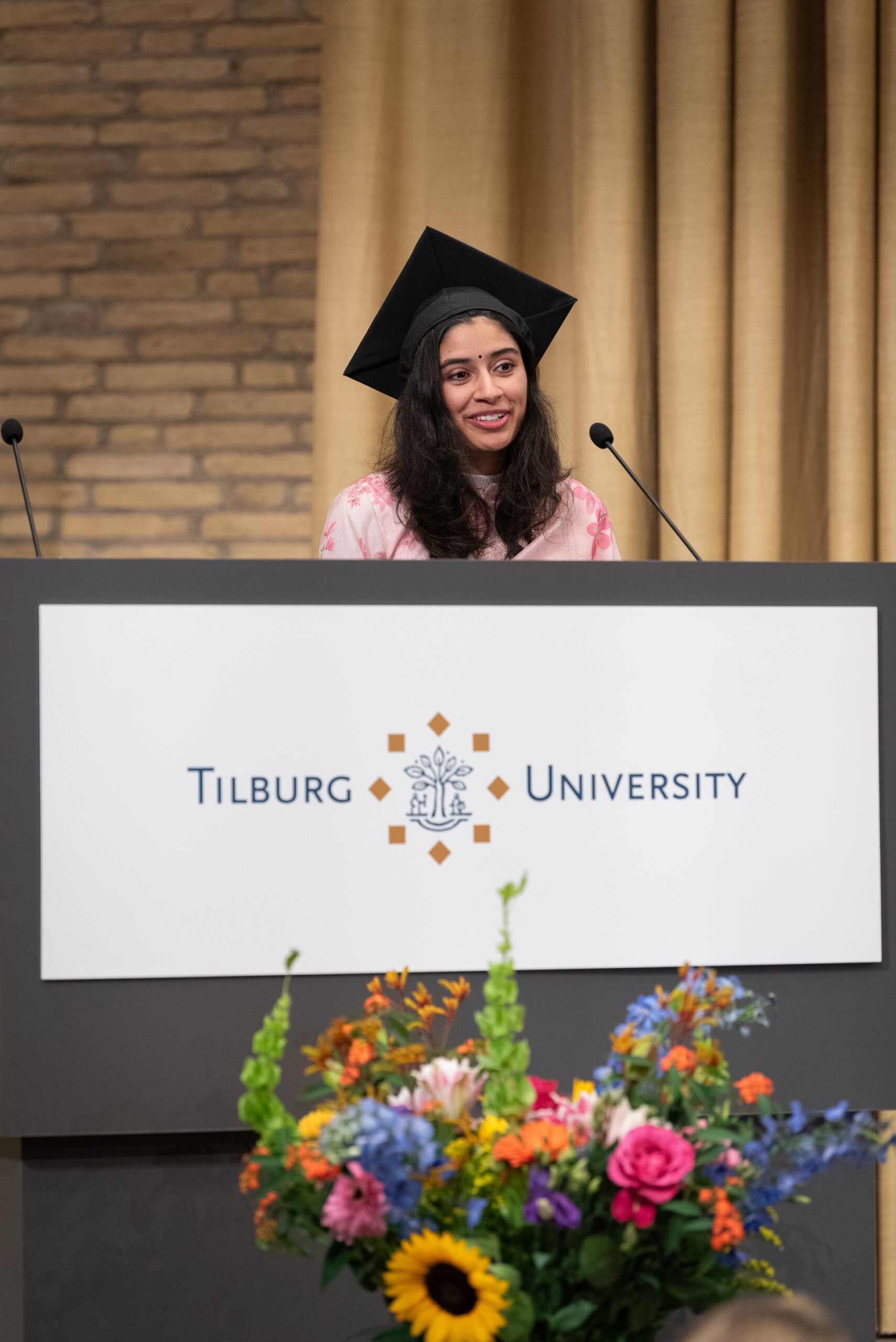IDA alumna Bhavya Sharma presented her Master thesis at the graduation ceremony of the IDA cohort 2022-2024.
The long-studied relationship between Well-being (WB) and Individual Productivity (IP) suggests happy workers to be more productive. This notion has been challenged in recent years in what is being called the Extended Happy-Productive Worker Thesis that concurrently considers WB and IP in a configurational setup delineating a four-pattern taxonomy. However, such an approach only yields a rather heuristic indirect measure of a highly dynamic, subjective and convoluted relationship. To fill this gap, this study aims to develop and validate the Wellbeing-Productivity Balance Scale (WPBS), an instrument designed to measure the perceived balance between WB and IP. It conceptualizes balance as equal engagement towards both WB and IP in terms of momentary experience, importance and satisfaction based on a review of literature yielding a three-dimensional scale that captures the overall perceived balance. Based on a thorough psychometric assessment using the survey data from 392 participants worldwide, WPBS was found to be a robust instrument that can reliably identify those with and without a perceived balance between WB and IP. It has well-calibrated and high-quality items, strong internal consistency, measurement invariant structure, high reliability and evidence of concurrent and predictive validity. Practical applications of the scale, along with theoretical implications, and limitations of the study were discussed concluding with some suggestions for future research.
Keywords: Scale Development, Well-being at Work, Individual Productivity, Sustainable Performance
Bhavya is now continuing her career in academia as a PhD candidate at Tilburg University. Congratulations Bhavya and best of luck with your new position!
📷 Images by Wilfried Scholtes LinkedIn







Be First to Comment